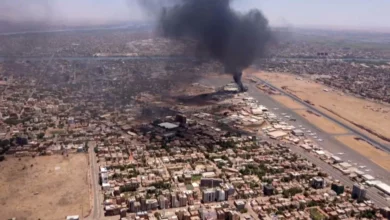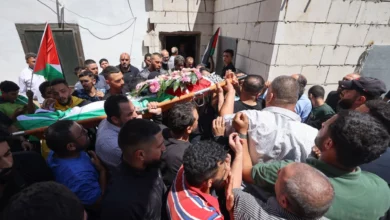Khartoum–Clashes between south Sudan’s army and Darfuri Arab tribes killed 58 people, raising tensions along the north-south border as results of the first open elections in 24 years are released, officials said on Sunday.
Sudan’s oil-producing south was allowed to keep a separate army and form a semi-autonomous government in a 2005 peace deal ending more than two decades of civil war with the north. Southerners will also vote in a key referendum on January 9, 2011 on independence.
“There was movement from the Rizeigat (tribe) and from the SPLA (the southern Sudan People’s Liberation Army). I can’t tell you who attacked who first but they clashed,” Rizeigat Arab tribal leader Mohamed Eissa Aliu told Reuters from South Darfur.
“It happened on Friday and those killed from the Rizeigat were 58 and 85 injured,” he said, adding the attack was in Balballa, South Darfur, which borders Western Bahr al-Ghazal in the south.
The SPLA said they were attacked by the northern army (SAF) in Raja, a remote part of Western Bahr al-Ghazal state, near where at least 5 officials from the dominant northern National Congress Party (NCP) and four others were killed by an SPLA soldier in murky circumstances during five-days of voting which began on April 11.
“Our company came under attack from the SAF forces yesterday afternoon,” SPLA spokesman Malaak Ayuen said late on Saturday. “The SAF was using four land cruisers with mounted machine guns.” He could not give further details.
A SAF spokesman denied any involvement but confirmed the SPLA attack on the Rizeigat in Darfur, calling it “a clear violation of the (peace deal).”
Results of the elections, marred by boycotts in the north and opposition accusations of fraud, are slowly being announced after days of delays.
The NCP and the ex-southern rebel Sudan People’s Liberation Movement (SPLM) will form a coalition government following the elections, after both parties look set to maintain their respective dominance in the north and the south.
The international community is concerned that less than eight months ahead of the key 2011 plebiscite on independence, key issues like the demarcation of the north-south border, grazing rights of nomadic tribes and citizenship have not yet been agreed by the partners in peace.
The north-south civil war, Africa’s longest, has raged on and off since 1955. It claimed 2 million lives mostly through hunger and disease and destabilized much of east Africa.
The south, which follows mostly Christianity or traditional religions, fought the mainly Muslim north over issues including oil, ethnicity and ideology.




